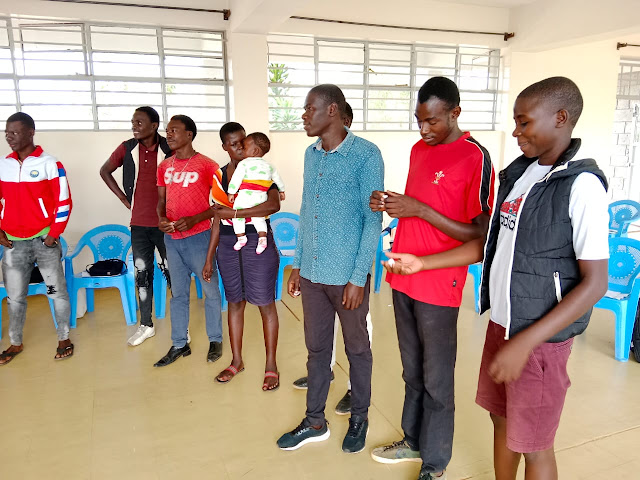Women Business Hub works with rural youths to transform them through life skills development and community engagement. The organization is using the following strategies to transform young people’s lives (1) Developing self-confidence and self-esteem: Life skills such as communication, leadership, problem-solving, and decision-making can help young people build their self-confidence and self-esteem. When they learn how to express their thoughts and opinions, solve problems, and make decisions, they become more self-assured and assertive. (2) Enhancing social skills: Life skills such as teamwork, communication, and conflict resolution can help young people improve their social skills. These skills enable them to build positive relationships, work effectively in teams, and resolve conflicts in a peaceful and constructive manner. (3) Developing resilience: Life skills such as adaptability, problem-solving, and coping skills can help young people develop resilience. Resilience is the ability to overcome challenges, bounce back from setbacks, and persevere in the face of adversity. (4) Improving academic performance: Life skills such as time management, organization, and study skills can help young people improve their academic performance. These skills enable them to manage their time effectively, stay organized, and study more efficiently. (5) Enhancing employability: Life skills such as communication, teamwork, problem-solving, and leadership can help young people enhance their employability. These skills are highly valued by employers, and possessing them can increase a young person's chances of securing a job and succeeding in the workplace. In summary, life skills can have a positive impact on young people's lives by helping them develop self-confidence, social skills, resilience, academic performance, and employability.
Women Business Hub is a gender responsive CBO with a Mission to empower women and girls through inclusive entrepreneurship, advocacy, and capacity-building programs that advance gender equality, promote sexual and reproductive health rights, and uphold the right to bodily autonomy. Our vision is a world where every woman and girl enjoy equal opportunity, economic empowerment, and full autonomy over their bodies, lives, and choices—free from discrimination, violence, and systemic barriers.
Subscribe to:
Post Comments (Atom)
Building Resilient Communities Through Trade Over Aid
Since its launch in 2025, the Trade Over Aid (TOA) Initiative has marked a decisive shift in how communities in Western Kenya region approa...

-
Community organizations and networks are uniquely positioned to interact with affected communities, respond quickly to community needs and i...
-
AMREF Health Africa developed the Organizational Development and Systems Strengthening (ODSS) curriculum to address the capacity needs of Ci...
-
Women Business Hub is working on strategies to assist low income young farmers and Key Populations in marketing their produce at an afford...


.jpeg)
.jpeg)
.jpeg)
.jpeg)
.jpeg)
.jpeg)



No comments:
Post a Comment